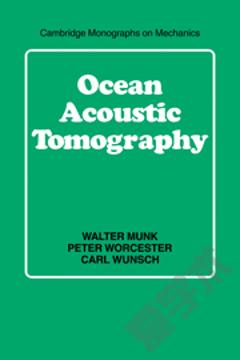Ocean Acoustic Tomography
The problem of ocean acoustic tomography is to infer from precise measurements of travel time, or other properties of acoustic propagation, the state of the ocean traversed by a sound field. Tomography takes advantage of two facts: that travel time and other measurable acoustic parameters are functions of temperature, water velocity, and other parameters of oceanographic interest, and can be interpreted to provide information about the intervening ocean using inverse methods; and that the ocean is virtually transparent to low-frequency sound, so that signals can be transmitted over distances of many thousands of kilometres. It is therefore possible to prepare a practical system of transmitters and receivers to interpret the behaviour of the oceans. This book gives a comprehensive presentation of the underlying oceanography and mathematics necessary to understand and develop such a system. It covers the forward and inverse tomography problem, as well as numerous models for data interpretation. Also included is an epilogue outlining the history of tomographic techniques. It should prove a valuable resource to oceanographers and climatologists, as well as applied mathematicians and engineers interested in applications of fluid mechanics tools.
{{comment.content}}








 京公网安备 11010802027623号
京公网安备 11010802027623号